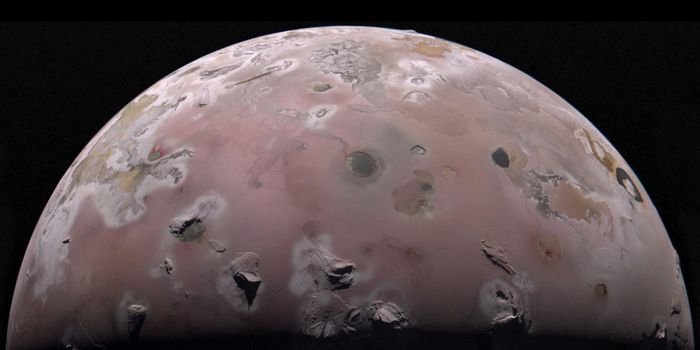Why apocalyptic discourse doesn't work when talking about climate change
NASA has predicted 15 inches of sea level rise by 2100. By that same year, the IPCC predicts atmospheric CO2 concentrations will reach between 730 and 1,020 ppm and temperatures will be 0.5 degrees Celsius higher. In other words, the end of the world (at least as we know it) is near.
You’ve surely heard all this rhetoric before. Apocalyptic discourse is nothing new when it comes to climate change. And if you’re like a lot of people, this doomsday-speak isn’t just overwhelming, it’s also off-putting. And, reports a new study in the International Journal of Global Warming, it’s also a poor communication strategy.
That’s according to Carnegie Mellon University researchers David Rode and Paul Fischbeck, who published the study with the intention of bringing to question the way we talk about climate change. They say that dramatic, fear-inducing forecasts are not the most successful way to motivate the public to take action against climate change.
"Truly apocalyptic forecasts can only ever be observed in their failure -- that is the world did not end as predicted," says Rode, adjunct research faculty with the Carnegie Mellon Electricity Industry Center, "and observing a string of repeated apocalyptic forecast failures can undermine the public's trust in the underlying science."
In order to analyze the shortcoming of such forecasts, Rode and Fischbeck looked at 79 predictions of climate-caused apocalypse dating as far back as the first Earth Day in 1970. They say the most obvious finding in their analysis is that 48 (61%) of the 79 warnings have already expired as of the end of 2020, and that many did not come about as predictions.
Fischbeck commented that "from a forecasting perspective, the 'problem' is not only that all of the expired forecasts were wrong, but also that so many of them never admitted to any uncertainty about the date. About 43% of the forecasts in our dataset made no mention of uncertainty." In other words, predictions have been made that the world will certainly experience ecological collapse by 2020 (or 2010, or 2000) – and…surprise, we’re still going.
This certainty and continued failure to occur doesn’t bode well with human psychology. Fischbeck explains, "It's like the boy who repeatedly cried wolf. If I observe many successive forecast failures, I may be unwilling to take future forecasts seriously.”
The scientists are quick to point toward the many true climate predictions, saying that the issue is not the science itself per se, but the way it is communicated to the masses. "The underlying science of climate change has many solid results, the problem is often the leap in connecting the prediction of climate events to the prediction of the consequences of those events," adds Fischbeck.
"By linking the climate event and the potential consequence for dramatic effect," added Rode, "a failure to observe the consequence may unfairly call into question the legitimacy of the science behind the climate event."
Instead, the duo says that scientists attempting to communicate their findings to non-scientists should focus on expressing some degree of uncertainty when making big predictions. And in general, they recommend concentrating on forecasting smaller, shorter-term events. "If you want people to believe big predictions, you first need to convince them that you can make little predictions," says Rode.
Sources: International Journal of Global Warming, IPCC, Science Daily









